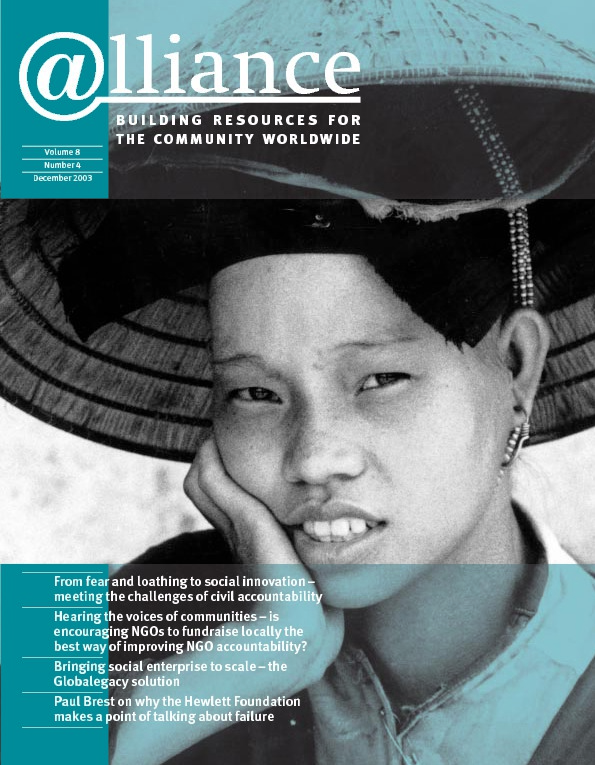In recent years, BPD[1] has explored a variety of relationships between the public, private and civil society sectors, with the aim of determining how their different institutional arrangements can facilitate the provision of water and sanitation in poor communities. Creating such partnerships at the local level is extremely challenging.
One of the most challenging aspects is how to ensure that the different partners are accountable to each other, ie they do what they say they will. Another is reconciling the accountabilities of the different project partners to their own stakeholders – poor people without safe water, company shareholders, etc.
Even if conference speeches and glossy brochures suggest otherwise, in actual fact, very few examples involving ongoing, continuously negotiated relationships between these different sectors exist in water and sanitation – though such partnerships are widely acknowledged to be critical in meeting the Millennium Development Goals in this area. BPD’s task has been to flesh out some of the experiences and findings about how to make these partnerships at the local level work more effectively. There is ongoing debate about how to make different partners accountable to each other and further analysis is needed to determine what forms of contract, memorandum of understanding, structured dialogue and negotiation of roles best facilitate such accountability.
In its simplest form, an example of the type of partnership we have worked with is a private company with a concession contract to provide water services throughout a city, within which various poor communities are not connected to the network. The municipality prioritizes communities to receive expanded services first, based on criteria relating to environmental degradation and groundwater contamination. It works with the company to map the communities and with the regulatory agency to experiment with different types of technology for affordable and sustainable water and sanitation services. An NGO/CBO works with the company to document the profile of poor households; with the municipality to design education and awareness campaigns on hygiene, drainage and other issues; and with the community to form water committees that can deal directly with the company.
Understanding the relationships
A better understanding of what we expect from these relationships helps to frame partnership accountability issues. Clearly partnership design must carefully review (and then revisit) the incentives for different partners to get involved. For example, while the project definition (say, to connect 500 households) may be universally accepted by all of the partners, the incentives and end objective for each partner may in fact be quite different. The NGO/CBO may be interested in community empowerment, the company in meeting its connection targets, the municipality in satisfying the electorate, and, most obviously, the households in getting an affordable, reliable water supply. Partnership accountabilities must weave in these drivers while also considering the wider context, like the contract between the public and private sectors (a pre-existing accountability framework).
Different types of accountability
Accountability in water and sanitation partnerships must be unpacked to include issues both within the project and between the partners. In the former, issues include whether or not communities have recourse mechanisms if the system fails, which partner is or will eventually be the communities’ primary point of contact, and whether the project is appropriately designed to ensure it meets community needs. Accountability between the partners involves consideration of when a contract must be used to ensure compliance with agreed tasks and recourse mechanisms in case a partner does not deliver (eg not adequately conducting the research that supports the design of the project, not connecting community pipes to the main network swiftly enough, or failing to sanction tariff/connection and subsidy policies without which the project’s sustainability might be derailed.
If water and sanitation partnerships are to deliver what is expected of them at the local level, they must introduce accountability mechanisms that do not overshadow the innovations that might be needed to maximise their effectiveness. Finding this balance is the pressing challenge that must be met if partnerships are not to become a mechanism of the past, leaving us no further in getting water and sanitation services to those that need them than we were before.
1 Building Partnerships for Development in Water and Sanitation. Formerly known as Business Partners for Development. For further information about BPD and various documents concerning BPD’s findings to date, see http://www.bpd-waterandsanitation.org
Ken Caplan is Director of Building Partnerships for Development in Water and Sanitation (BPD). He can be contacted at kencaplan@bpd-waterandsanitation.org
For more information
http://www.bpd-waterandsanitation.org





Comments (0)